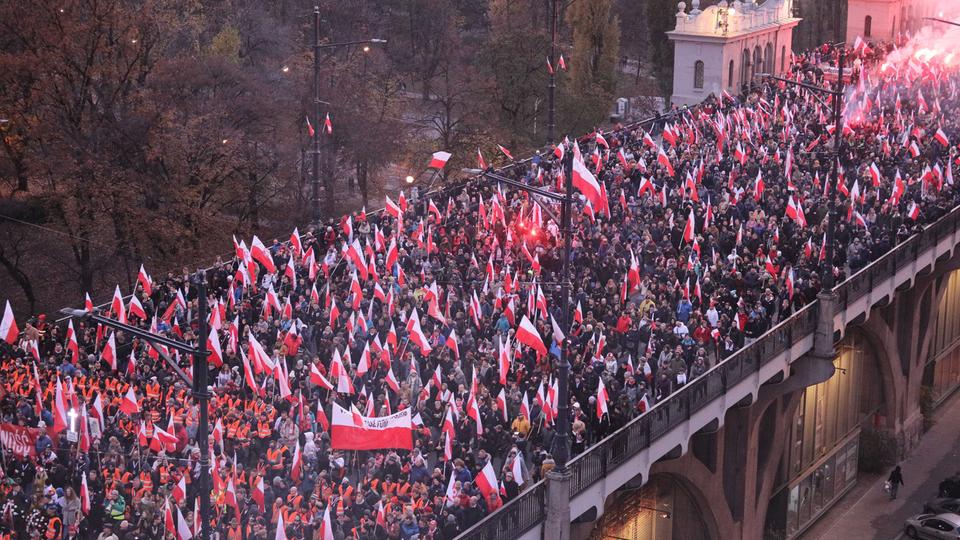Independence march in Warsaw banned because of Corona

The Corona crisis is also spreading in Poland in the direction of the independence march. Now, on the part of the ruling Lord Mayor, the Rafal Trzaskowski the independence march was banned. This should actually have taken place on 11 November 2020 should take place.
Now the city's health department has put a spanner in the works. Because: those responsible considered the risk of the coronavirus spreading even further to be too high, given the large number of participants and the distances that often had to be observed. Furthermore, in Poland issued a ban on assemblies anyway due to the pandemic, which cannot be reconciled with holding a demonstration (or a march).
As in Germany, contact restrictions currently apply in Poland, among other countries. Currently, only a maximum of five people are allowed to meet there.
With a critical eye: demonstrations during the Corona crisis
A look at the media landscape shows that protests are currently taking place in many countries around the world - including Germany. Recent examples include the demonstrations in connection with the "Black Lives Matter" movement or the protests against the existing Corona rules.
Demos were also recently held in Poland against an expansion of the current ban on abortions took place. A high five-digit number of participants gathered here recently (and also in Warsaw).
This is exactly what the cancellation of the independence march in mid-November was meant to avoid.
At the same time, the right to Demonstrations in numerous countries around a Fundamental right. In Germany in particular, it is precisely this balancing act that leads to discussions time and again.
The Polish Independence March in Warsaw as a platform for right-wing populists?
The scepticism that many people - not only in Poland - associate with Independence Day is no coincidence. In recent years, there have been repeated incidents of rioting at this event, which - according to the relevant reports - were mainly driven by right-wing or nationalist groups.
The accompanying pictures and posters distributed in the run-up to this year's event feature a knight destroying a star in rainbow design. Particularly piquant: Poland has come under fire again and again lately, among other things, for its LGBT-free zones into criticism. Also many politicians in Germany, such as Ursula von der Leyenrecently made themselves Strong for the rights of the scene. Some cities even cancelled twinning agreements.
The fact that those responsible for the independence march are now pouring oil on the fire with the associated posters seems very provocative and not very insightful to many people.
It remains to be seen whether - due to the cancellation - some demonstrators will now meet in smaller groups and draw attention to their concerns.
What is actually behind 11 November?
11 November is considered a bank holiday in Poland. This aspect is based on an event in 1918, on which Jozef Pilsudski received the power of command over the army. He immediately proclaimed the independence of the country. The whole thing was then finally brought to an end by the Treaty of Versailles among other things, also set out in writing.
Because of Poland's close national ties and the independence that comes with this special day, numerous right-wing groups have decided to "celebrate" this day in their own way.
In 2020, there is less of an opportunity to do so. However, the likelihood that the internet and the relevant platforms will be used to campaign, among other things, against the LGBTQ Scene is high.
You might also like this post:
Keine Kommentare vorhanden